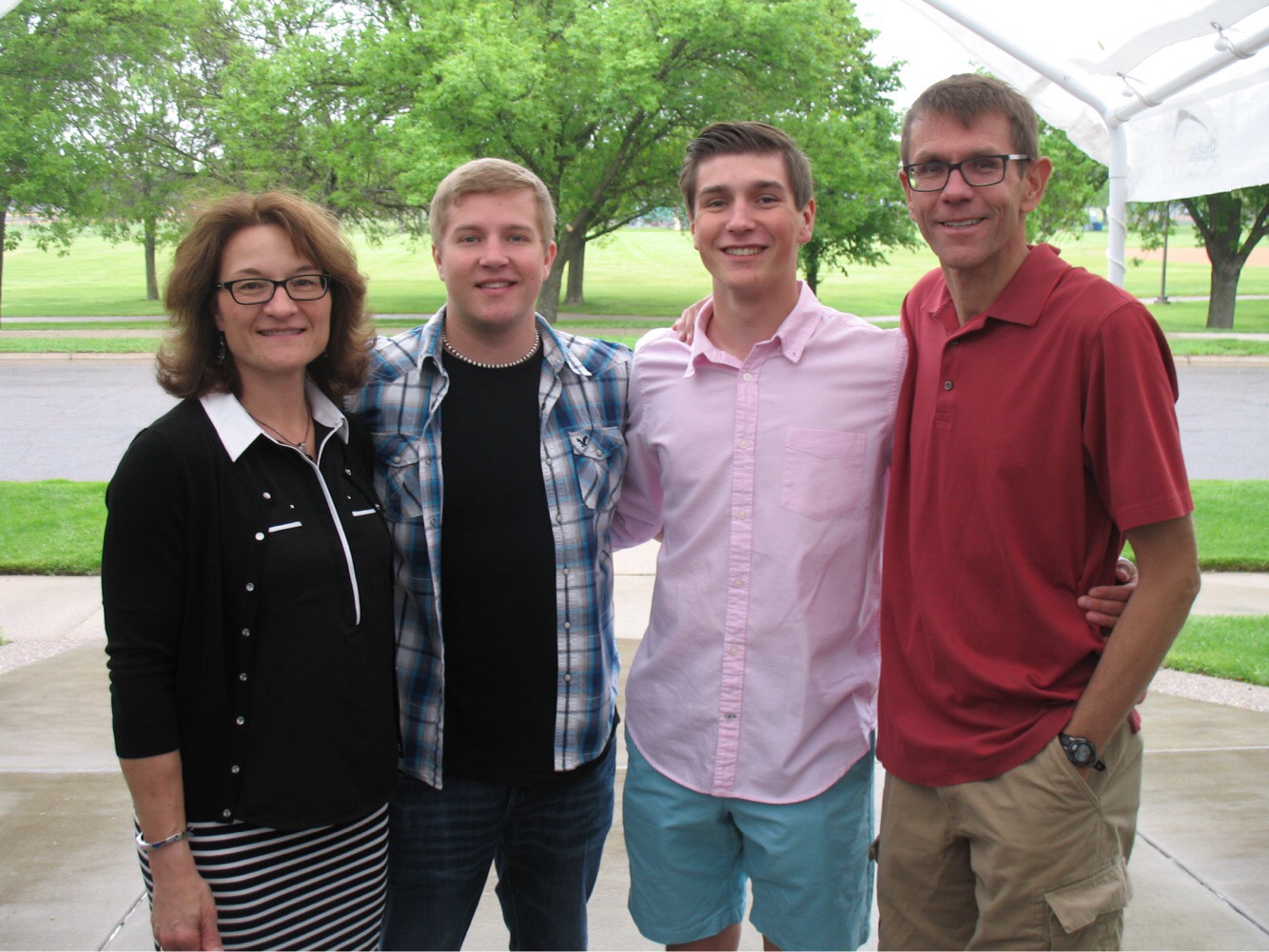Northern Minnesota attracts visitors in every season. The clear skies, the blue water, and the endless adventure make the Boundary Waters a bucket-list destination for countless travelers. When Gustavus Adolphus College junior Riley Thoen was younger, he too dreamed of completing that trip, but it took the help of medical research to make it happen.

Growing up, Thoen and his brother watched their father cope with the difficulties of Type 1 diabetes, including hypoglycemia unawareness, a dangerous condition that left him incapable of detecting the crucial warning signs of low blood sugar.
“We always felt on edge,” said Thoen. “One time, we found him in a snowbank, passed out. A different time he hit his head while fainting. We just had a different reality.”
Two cell transplants and a recovery later, Thoen and his family would know a new and less fearful life. The medical team at the University of Minnesota’s Schulze Diabetes Institute isolated healthy beta cells from a cadaver donor and injected them into Thoen’s father’s liver, allowing for his independent production of insulin. With no more risks of undetected low blood sugar, a trip up north suddenly appeared on the family schedule and Thoen found himself hiking, paddling, and camping alongside both his brother and his father.
Now, nearly 10 years later, the Gustavus biology major is hoping to make that kind of a possibility a reality for others. Thoen spent the summer assisting those who had helped his family. After two years studying, researching, and completing science courses on the Hill, he returned to the Schulze Diabetes Institute, this time as a research assistant. Focusing on an area similar to his father’s transplant, Thoen joined a team tasked with improving the outcomes of surgeries for patients with chronic pancreatitis, a procedure known as total pancreatectomy with islet autotransplantation (Tp-iat). Through an isolated cell transplant, the process eliminates the pain and negative quality of life caused by a damaged pancreas but retains its endocrine capabilities. During his work, Thoen assisted in the lab setting, isolating cells from both human and pig islet samples, and conducted statistical research, analyzing data for the team.
“I loved working with the numbers because it’s like a puzzle and it’s fun to try to put all the pieces together to find a solution,” said Thoen. “Understanding the bigger context of the work we were doing made it all the more worthwhile.”

At the completion of his time at the Institute, Thoen returned to Gustavus and presented his findings at this year’s fall research symposium. His work had also reaffirmed his understanding of the importance of the scientific research, something that he learned his first semester on campus.
“I took chemistry and biology my first semester here, but I really wasn’t sure what I would pursue. When I found out how much more there was to biology than I learned in high school, I knew I had to keep doing it. I had so much left to learn,” Thoen said.
Fully immersing himself into the community of the biology department, Thoen joined the Tri-Beta Honor Society, became a tutor, and assisted students and professors as a teaching assistant. Currently, he is pursuing an opportunity to conduct independent research on campus under the direction of biology professor Pamela Kittelson.
“Riley comes prepared, he asks good questions, and he listens and synthesizes information from multiple sources. He is also willing to challenge himself intellectually and to follow curious threads,” Kittelson explained. “Riley seeks out existing research to gain a fundamental understanding and to identify gaps that require additional work. He asks for feedback on his ideas, on the logic of his hypotheses and as a writer. His perseverance and openness to constructive criticism are essential traits for success in any endeavor.”
Looking ahead, Thoen knows he is in the right area of study, and he is determined to continue researching. While the specifics of his future path remain open to many possibilities, he is holding on to a common dream.
“I want to be able to use research and our findings to improve the state of our world and the state of others’ lives,” said Thoen. “I have seen the impact of the science in my family and that’s something you can’t forget.”

Leave a Reply
You must be logged in to post a comment.